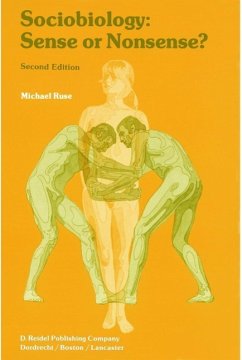
Cultural Evolution (eBook, PDF)
Conceptual Challenges

PAYBACK Punkte
5 °P sammeln!
Tim Lewens aims to understand what it means to take an evolutionary approach to cultural change, and why it is that this approach is often treated with suspicion. Convinced of the exceptional power of natural selection, many thinkers--typically working in biological anthropology, cognitive psychology, and evolutionary biology--have suggested it should be freed from the confines of biology, and applied to cultural change in humans and other animals. At the same time, others--typically with backgrounds in disciplines like social anthropology and history--have been just as vocal in dismissing the...
Tim Lewens aims to understand what it means to take an evolutionary approach to cultural change, and why it is that this approach is often treated with suspicion. Convinced of the exceptional power of natural selection, many thinkers--typically working in biological anthropology, cognitive psychology, and evolutionary biology--have suggested it should be freed from the confines of biology, and applied to cultural change in humans and other animals. At the same time, others--typically with backgrounds in disciplines like social anthropology and history--have been just as vocal in dismissing the evolutionary approach to culture. What drives these disputes over Darwinism in the social sciences? While making a case for the value of evolutionary thinking for students of culture, Lewens shows why the concerns of sceptics should not be dismissed as mere prejudice, confusion, or ignorance. Indeed, confusions about what evolutionary approaches entail are propagated by their proponents, as well as by their detractors. By taking seriously the problems faced by these approaches to culture, Lewens shows how such approaches can be better formulated, where their most significant limitations lie, and how the tools of cultural evolutionary thinking might become more widely accepted.
Dieser Download kann aus rechtlichen Gründen nur mit Rechnungsadresse in A, B, BG, CY, CZ, D, DK, EW, E, FIN, F, GR, HR, H, IRL, I, LT, L, LR, M, NL, PL, P, R, S, SLO, SK ausgeliefert werden.













